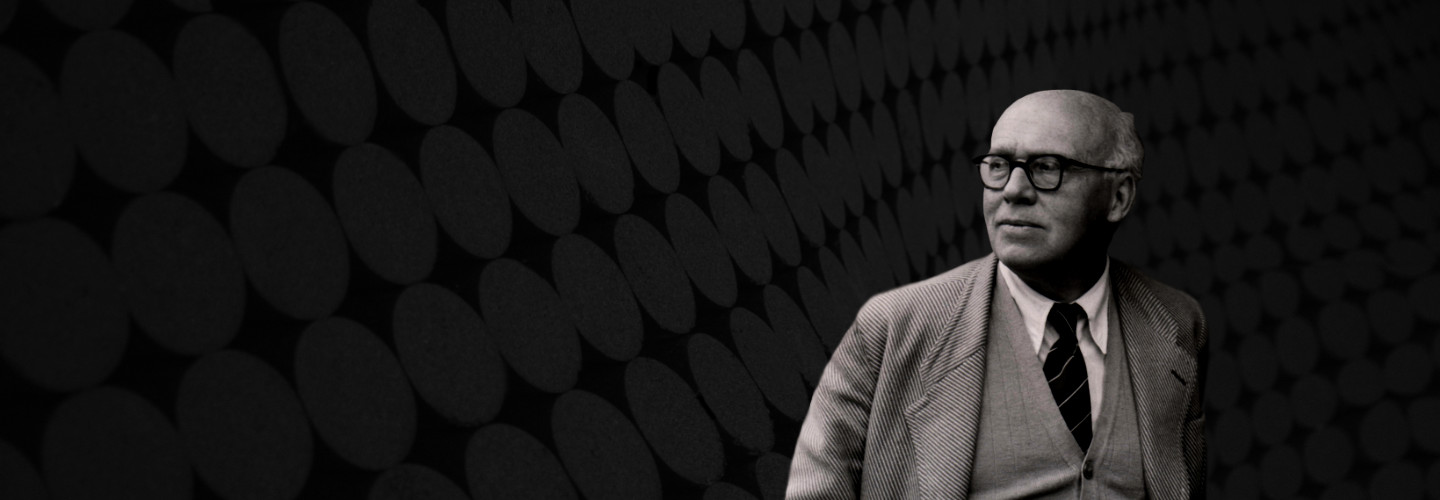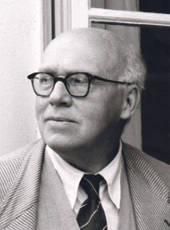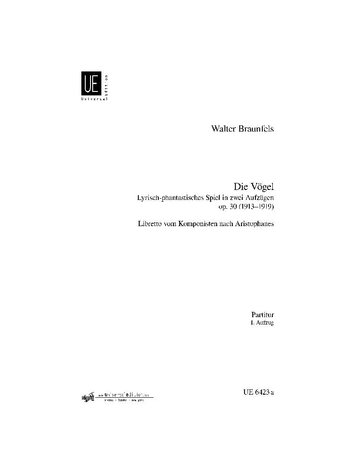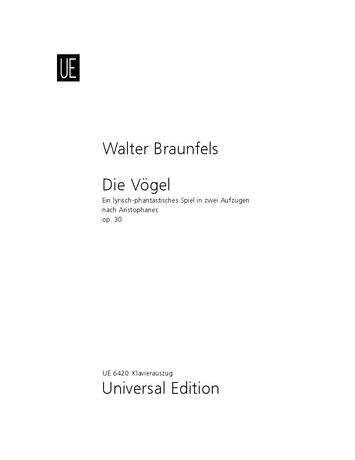

Walter Braunfels
The Birds
Short instrumentation: 3 2 2 2 - 4 2 3 1 - timp, perc(2), hp(2), cel, str; flute behind the scene
Duration: 120'
Text bearbeitet von: Walter Braunfels
Textvorlage: Aristophanes
Choir: SATB
Roles:
Hoffegut und Ratefreund
Bürger einer großen Stadt
tenor and high bass Stimme des Zeus
baritone Prometheus
baritone Wiedhopf
einstens ein Mensch
nun König der Vögel
baritone Nachtigall
high soprano Zaunschlüpfer
soprano Adler
bass Rabe
bass Flamingo
tenor 1. Drossel
low soprano 2. Drossel
soprano 3 Schwalben und 2 Meisen
sopranos 4 Wendehälse
tenors 2 Kibitze
basses ballet
Instrumentation details:
1st flute
2nd flute
3rd flute
oboe
cor anglais
1st clarinet in A
2nd clarinet in A
1st bassoon
2nd bassoon
1st horn in E
2nd horn in E
3rd horn in E
4th horn in E
1st trumpet in Bb
2nd trumpet in Bb
1st trombone
2nd trombone
3rd trombone
tuba
timpani
percussion(2)
celesta
1st harp
2nd harp
violin I
violin II
viola
violoncello
contrabass
flute cont.aind the scene
Braunfels - Die Vögel
Audio preview
Work introduction
Premiered by Bruno Walter in 1920 (the year when the Phantastische Erscheinungen also received its first performance), The Birds may well be the composer’s chef-d’oeuvre; it is certainly the work that has had more performances than any other of his compositions after World War II, with productions fairly regularly since its first post-war performance in Berlin in 1994. Klaus Geitel described the experience in Die Welt: “Saturated with a closely-woven richness of inspiration … a magnificent piece of music”. Seventy years previously, Alfred Einstein enthused after the premiere: “I do not believe such a complete work of art has ever before been performed on the German operatic stage. There is an imperative at work here which calls for comparison with the Mastersingers and Pfitzner’s Palestrina.”
“The key to Braunfels’ treatment of the subject lies in the depiction of three levels of reality: the world of men, the world of the birds (or that of the imagination) and the world of the gods. Whereas in Aristophanes the men succeed in their rebellion against their gods, Braunfels here lends a more ‘Christian’ character to Zeus, father of the gods and has him punish man for his arrogance. After the city of the birds has been destroyed by the forces of heaven, the birds pay homage in a pious hymn to the power and greatness of the gods. The humans have to return home in humiliation.” (Frithjof Haas)


